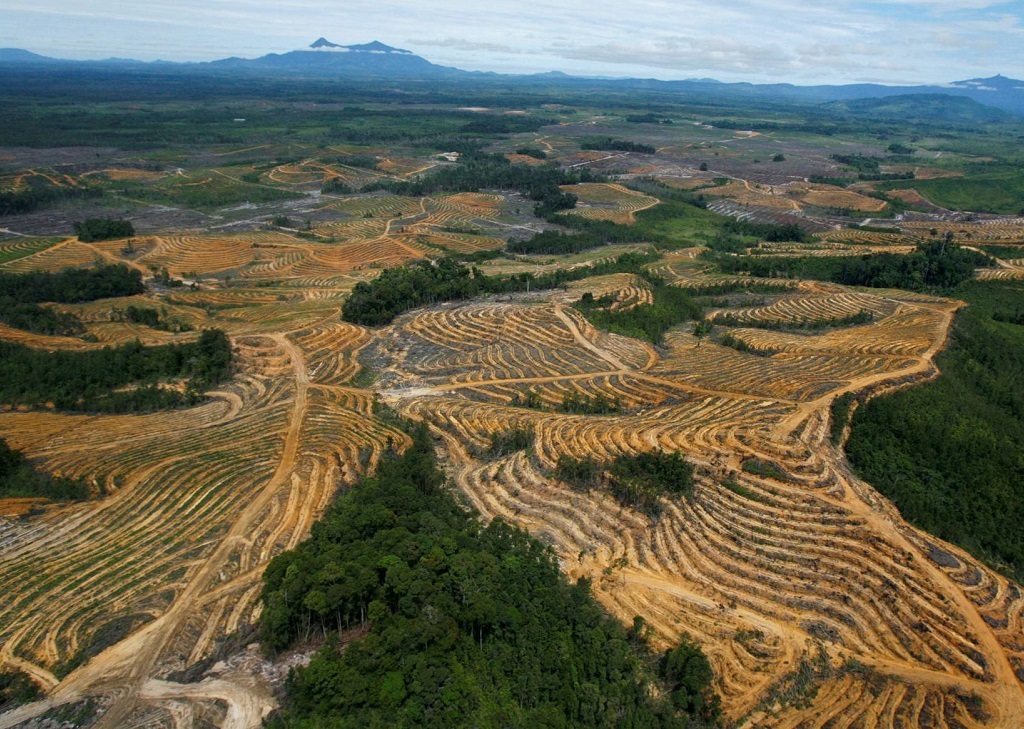11 Dec 2024

Tired Earth
By The Editorial Board

As companies ramp up their action on climate change, they need to be approaching it as part of one larger “nature” problem by also factoring in issues such as deforestation and biodiversity.
That was one of the underlying messages that Thomas Maddox, global director of forests and land at environmental disclosure body CDP, stressed in a recent interview.
While deforestation has worked its way up the corporate agenda, driven in part by shocking images of a burning Amazon and growing concerns over the production of palm oil, companies may still be tempted to treat their responsibilities on climate and forests as separate issues.
“Really, we need to be seeing this as one issue: It's essentially that we demand too much from our environment, and we chucked too much waste back into our environment,” Maddox says. “Sometimes … you will actually have different departments with competing budgets — one on biodiversity, one on climate, one on water, one on social issues — whereas of course it would be much more effective to be treating all of these in one.”
The basis of that connection is the key role forests play in climate change. Notably that comes in terms of contributing to it when trees are cleared or burned — about 11% of global carbon emissions stem from deforestation and forest degradation, according to the U.N. Environment Programme — and absorbing greenhouse gases when they’re not. If the emissions caused by deforestation were treated as those of a country, they would rank only behind the U.S. and China in terms of carbon output, the U.N. agency adds.
But forests also increase resilience to warming-caused extreme weather, help lower temperatures and improve biodiversity, among other things.
More companies are making the link, however. According to Maddox, that realization is being driven by a greater understanding of climate change and the extent of damage caused to the natural world. On top of that, more companies are beginning to appreciate what environmental degradation means for their business — a World Economic Forum report published in 2020 found that $44 trillion of economic value, or more than half of global gross domestic product, was moderately or highly dependent on nature — as well as how they can actually profit from taking steps sooner.
“There's a recognition that companies are starting to get on top of climate risk, but there's this other big risk around nature — which includes biodiversity, which includes deforestation, which includes water issues — and companies are really recognizing, ‘Right, we need to get on top of this,’” Maddox says.
“It's about the recognition of how big the problem is, recognition of how it relates to climate, recognition of how big a sort of global economic issue it is, and then recognition of how it's actually impacting companies on a day-to-day basis.”
But there is still more to be done.
“Companies are kind of testing the water and starting to get active in (forests), but they need to go much further and work much harder,” Maddox says. “I don't think there's any disadvantage to having a supply chain with zero deforestation — there are many, many advantages, and it ticks multiple environmental goals in one go.”
Still, deforestation continues apace. Loss of tropical forests remained “stubbornly high” in 2021, according to the World Resources Institute’s Global Forest Watch, with 11.1 million hectares of tree cover lost, almost half the size of Honshu. Emissions from the loss of the most biodiverse and carbon-dense tropical forests were equivalent to India’s annual emissions from fossil fuels — the third largest.
Action on deforestation at the international level has nonetheless been on the agenda. At the COP27 U.N. climate talks in Egypt last month, forests for the first time got their own section in the so-called cover text, which can signal political considerations.
And as part of a flurry of announcements on the issue coinciding with COP27 and a Group of 20 meeting, Brazil, Congo and Indonesia — the nations with the three largest areas covered by rainforests — pledged to put together a “funding mechanism” to help prevent deforestation. Another concerned the launch of the Forests and Climate Leaders’ Partnership, which involves 26 countries and the European Union and seeks to enhance cooperation on reversing and halting deforestation by 2030, building on the Glasgow Climate Pact.
Separately, the EU earlier this month agreed on a new law prohibiting the sale of coffee, beef, soy and other commodities that are linked to deforestation around the world, with companies’ necessary due diligence based on a risk rating.
“(The legislation) certainly raises the bar for other countries to follow,” Maddox says. “We are also happy it covers all deforestation — not just illegal deforestation,” setting it apart from equivalent legislation elsewhere.
“Whilst it is the highest benchmark we have at present, we still want more,” he adds. “We would like to see the risk rating system go down to a more granular level.”
But fundamentally, Maddox sees environmental disclosures such as those made to CDP as being crucial to driving change. For investors and businesses, the disclosures mean they are able to make more informed decisions about where they are putting their money or who to have as clients, which in turn can prompt companies to take stronger action. In addition, the disclosures can also act as a guide for best practices for companies and give them a clear indication of how they are performing from one year to the next.
Over 18,700 companies — including listed firms worth a combined $60.8 trillion — made disclosures through CDP in 2022. In particular, businesses disclosing on forests rose 20.5% from 2021.
“It's just such an important step for driving change — if we don't know where we are, we just don't have a hope of improving things,” Maddox says.
Source : japantimes.co.jp
Comment